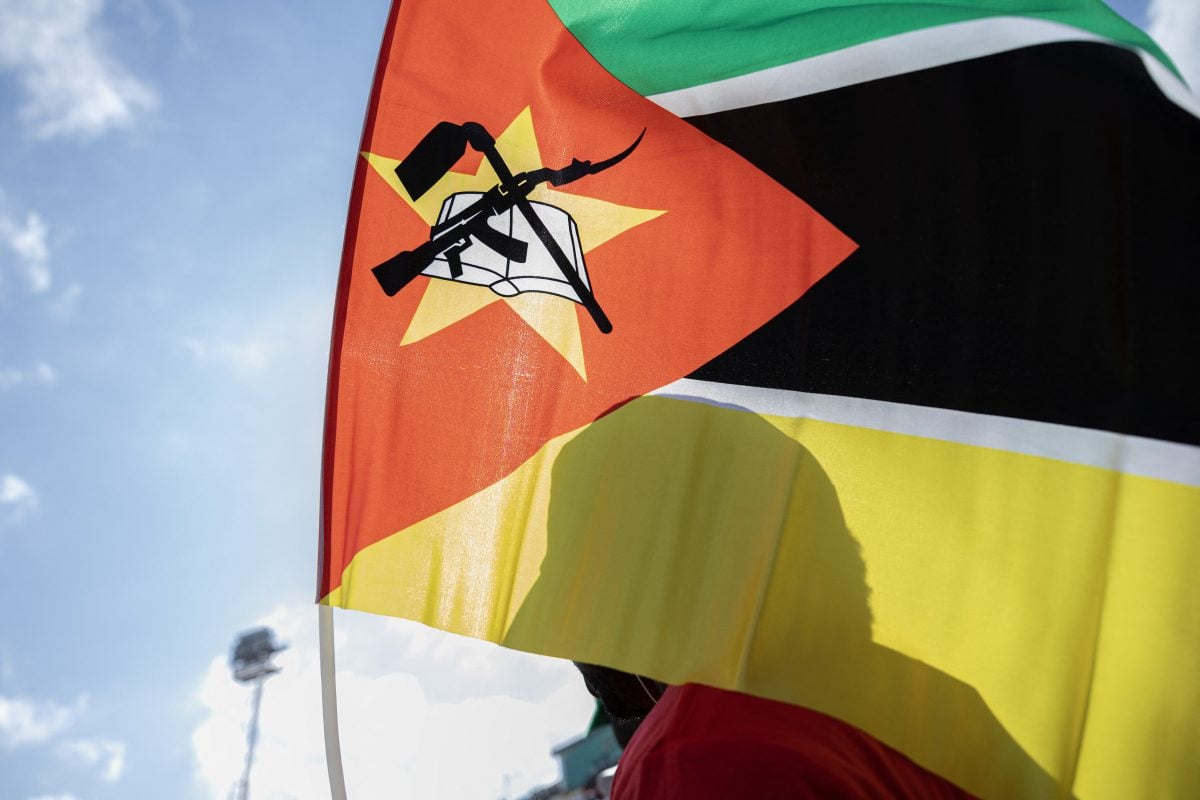Carla Louveira was promoted to Mozambique’s finance minister in January.
In her previous role as deputy minister of economy and finance of Mozambique she was responsible for overseeing the fiscal policy, public debt management, financial inclusion and budget execution of the country.
In this exclusive interview, she tells African Business about the country’s plans to accelerate growth following the country’s post-election crisis and an unfavourable international environment.
African Business: Mozambique has gone through tough times over the past five years although it has turned a corner more recently. What are the main fiscal challenges and risks currently and how is the government managing these?
Carla Louveira: Yes. Between 2020 and 2024, Mozambique experienced a gradual path of economic recovery following the 2020 recession, when real GDP contracted by -1.3% due to the combined impact of the Covid-19 pandemic, climate shocks, and security tensions in the north of the country.
In the subsequent years, there were signs of economic rebound, with real GDP growth reaching 5% in 2023 – the highest of the period – driven by the start of liquefied natural gas (LNG) production and the recovery of the agriculture and mining sectors.
However, in 2024, growth slowed to 1.9%, reflecting domestic uncertainty due to the post-election crisis in the last quarter of the year, and a less favourable external environment.
Over this same period, Mozambique pursued fiscal consolidation, with significant progress in revenue collection and expenditure control, culminating in a primary surplus of 0.2% of GDP in 2023 – a sign of fiscal discipline and commitment to balance.
In 2024, however, the primary balance again turned negative (-1.3% of GDP), as expenditure grew faster than revenue.
What are the priority sectors and how are these being exploited to attract investment?
Mozambique has significant potential across multiple areas. This includes vast reserves of natural gas (over 200 TCF) and coal (about 23 billion tons), as well as strong potential for solar, hydro, and wind energy. The big project, TotalEnergies’ Afungi project ($20bn) is expected to restart before the end of 2025.
In agriculture and agro-industry, we have 36 million hectares of arable land, much of it underutilised but with great potential. We also have promising agro-processing opportunities in fruit, furniture, and other products.
In the leisure industry, there are strong prospects for eco-tourism, luxury resorts, and heritage tourism across over 2,700km of coastline, wildlife reserves, and biodiversity. The government has earmarked sites like Inhassoro, Pemba, and Crusse Jamali for integrated tourism development.
Infrastructure and logistics corridors are a critical opportunity, which are attracting investments in ports, roads, railways, and transport networks.
Technology and digital innovation are progressing, and tech hubs in Maputo and Nampula are emerging, driven by digital infrastructure expansion.
Investor incentives include the Fiscal Benefits Code, which provides VAT exemptions, tariff breaks on capital goods, and tax credits of up to 10% based on location.
The private sector is calling for reforms to develop the economy. What is on the table?
The government and the private sector have a structured dialogue mechanism, the Public-Private Dialogue, an essential platform to remove investment barriers, improve the business climate, and drive growth.
A key platform in this regard is the Annual Private Sector Conference (CASP) led by the president, which evaluates outcomes from the dialogue. Another is the Business Environment Monitoring Council chaired by the prime minister, which approves and monitors reform matrices. And a third is the Interministerial Group for Removal of Investment Barriers (GIRBI), which identifies and addresses issues hindering the business environment.
At CASP 2024, a reform matrix was approved including a review of the fiscal benefits code, simplification of visas, the digitalisation of tax, and easier capital repatriation.
Also covered in the reforms is the establishment of a climate resilience fund, national participation in megaprojects and monitoring of local content, drawing up carbon market legislation and developing new business climate reform tools.
Local content is an area of focus for the government. This year, nationwide consultations were held to establish rules for local procurement by oil and gas investors. The establishment of a Local Content Agency is also envisaged.
The next steps include a technical and legal review and submission of proposals to the Council of Ministers before a submission to parliament.
The IMF is calling for public sector reform. What are the key reforms on their list and how is the government approaching this?
Mozambique has re-engaged with the IMF and is currently in a constructive dialogue to discuss economic policies for macroeconomic stability and growth. A team recently visited to conduct a technical exploratory mission as part of ongoing negotiations for a new programme.
Their focus is macroeconomic stability and prudent fiscal management. Discussions cover issues such as revenue and expenditure growth, public debt sustainability, stimulus measures for the economy, and the reform of state-owned enterprises. It also includes governance issues.
This was not yet a decision-making mission, but rather an assessment of the macro-fiscal situation.
What are the specific drivers of the current foreign exchange shortage and impacts on the economy?
Liquidity indicators in the market do not suggest a shortage of foreign exchange. Still, the regulator has adopted measures to improve liquidity and flexibility for banks. These include: increasing mandatory conversion of export revenues from 30% to 50% for 18 months; requiring full conversion of revenues from the re-export of petroleum; special provisions on minimum regulatory provisioning for overdue loans (valid for 12 months), allowing banks more lending capacity. Additionally, in 2023, the revised Foreign Exchange Law was approved, gradually removing capital account restrictions, facilitating capital flows, attracting FDI, diversifying financing sources, and improving allocation efficiency.
What are your current fiscal priorities?
Our policy measures, Louveira writes, are reflected in the Government’s Five-Year Program 2025–2029, and more specifically in the Economic and Social Plan and State Budget for 2025.
On the revenue side, reforms are largely focused on tax. These include:
- Strengthening the institutional capacity of the Mozambique Revenue Authority to improve the tax system’s efficiency and effectiveness.
- Optimising taxation of digital transactions, especially electronic money (M-Pesa, e-Mola, M-Kesh), and taxing tourism operators’ online transactions.
- Tightening control over reference prices in the export of mineral and agricultural products.
- Implementing fiscal mechanisms to reduce tax evasion and increase VAT and corporate tax compliance.
- Reviewing the Fiscal Benefits Code and rationalising tax exemptions.
- Developing a medium-term revenue strategy to expand tax collection, combat evasion, and incentivise the formalisation of informal businesses.
- Consolidating electronic tax management systems such as e-taxation and the Electronic Single Window.
On the expenditure side, priorities are:
- Improving efficiency, effectiveness, and cost control in public service delivery.
- Rebalancing public spending to create fiscal space for investment.
- Containing the wage bill and strengthening human resource management.
- Strengthening institutional capacity for debt management, prioritising concessional external borrowing over domestic debt.
- Updating the medium-term debt management strategy; reducing discretionary spending and consolidating wage reform gains.
- Operationalising the State Procurement Centre in order to reduce corruption.
Want to continue reading? Subscribe today.
You've read all your free articles for this month! Subscribe now to enjoy full access to our content.
Digital Monthly
£8.00 / month
Receive full unlimited access to our articles, opinions, podcasts and more.
Digital Yearly
£70.00 / year
Our best value offer - save £26 and gain access to all of our digital content for an entire year!

 Sign in with Google
Sign in with Google 



